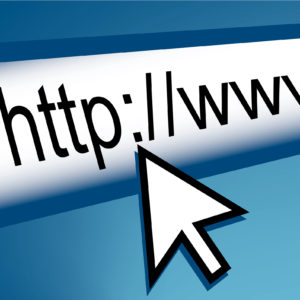Some experts and industry players think the internet has evolved to a point where it no longer makes sense for big tech platforms to compensate content creators, but updates to European copyright law could change that.
The European Union’s (EU) updated Copyright Directive — passed by the European Parliament on Wednesday — would force big tech platforms like Google and Facebook to obtain licenses in order to distribute the intellectual property (IP) they provide access to, like news stories and other media, which could trickle down to higher costs for consumers.
This so-called “link tax” is viewed as a disaster in some quarters of the internet-regulation debate. The libertarian-leaning Electronic Frontier Foundation says new internet regulations in including the Copyright Directive are “setting the stage for mass, automated surveillance and arbitrary censorship of the internet.” The headline at PCMag.com reads: “The EU and the Internet Go to War.”
But supporters of the new regulations disagree. By essentially forcing platforms like Google and Facebook to pay for the IP they provide access to, they argue, creators like journalists, artists and musicians will have the opportunity to be compensated. Tech platforms will have to either absorb those costs or pass them on to consumers.
“It’s only controversial because the big tech companies don’t want to pay for the content they put on their networks,” Roslyn Layton, a visiting scholar focusing on telecommunications and the internet at the American Enterprise Institute (AEI), told InsideSources. “Fair use from the perspective of Google is, ‘We get to use your IP without paying for it, or paying the minimum.'”
Layton said content creators in the EU — like journalists, artists and musicians — struggle to make money on their work because they don’t have a sustainable way to market their content in the very culturally diverse EU. Platforms like Google and Facebook provide an outlet for creators to market their content, but don’t pay creators.
“The U.S. has more than 300 million people, there’s a large market to whom you can see your content and make a reasonable return,” Layton explained. “When you look at 28 countries in the EU, and you’re looking at digital models, there’s not enough people to recover your costs. You need millions and millions of viewers to make a viable business. The problem for a lot of these smaller countries is there’s not enough viewers. We have a common culture and language. That’s not the way the EU works. That’s an economic issue if you believe that culture matters. It’s unfortunate that Google and Facebook really pay short thrift to these concerns. From their perspective, it’s, ‘Hey we make it possible for you to share your information with everybody.'”
Critics of the law recognize the intent of the directive to facilitate honest compensation for creators, but say the directive’s language is too vague. Such a sweeping rule for all 28 countries in the EU could result in unintended consequences, like when Spain passed a similar law in 2014 and Google shut down Google News.
Google’s lesser, local aggregator competitors couldn’t afford to pay local news publications the licensing fees, and so they shut down, and local news publications saw a decline in traffic to their websites, according to the Verge.
Critics argue that this kind of law essentially stifles the 21st century media market in its present evolved form.
Current rules and regulations in the EU and U.S. regarding “fair use” and the idea of a free and open internet favor big tech companies because they are then not obligated to pay for creative content, which can strangle small businesses and creators.
“It’s not a fair business model, it’s not a free business model in a sense,” Layton said. “They have regulation in place that allows them to flourish. It’s not fair competition because when the competitors to Google are running somebody’s content, they have to pay the rights to the magazines and newspapers. Everybody else pays for the content they use, and Google feels like it shouldn’t have to.”
Platforms like Google and Facebook rely on providing free access to creative content — creative content they didn’t ask permission to use — and then make money off advertisements riding on the creative content.
“At the end of the day, it is pure business,” Layton said. “You can create a business where you don’t have inventory or purchase the things you sell, and that’s a great business model.”

